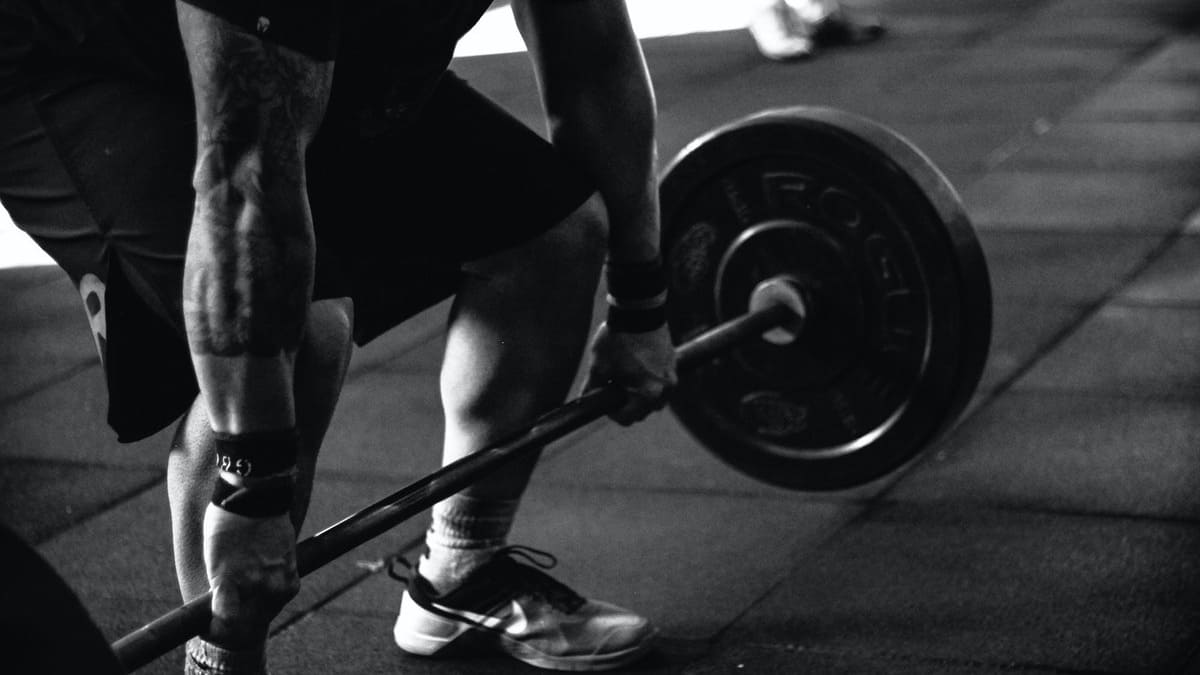Recovery is an essential aspect of sports performance and involves the restoration and reconstitution of energy reserves and substances involved in physical effort. However, recovery time can vary greatly depending on various factors, such as training level, type of injury, and individual fitness level. In this article, we will explore the different factors that can influence sports recovery, including dehydration, muscle injuries, motivation, and the severity of the injury. Understanding these factors can help both athletes and coaches to develop effective recovery strategies and optimize their performance on the field.
Training Level
When it comes to sports recovery, the level of training plays a crucial role. Athletes who have undergone extensive training and conditioning tend to show a more efficient recovery process. This is due to the physiological adaptations that occur as a result of regular and intense training. These adaptations often lead to a greater capacity to eliminate waste products, an improved cardiovascular system, and increased muscle endurance. As a result, experienced athletes usually have a quicker recovery ability, allowing them to endure and recover from intense physical effort more quickly than their less-trained counterparts.
The training an athlete receives plays a crucial role in their physical condition and endurance. This, in turn, affects how they recover from fatigue or injuries. The body's ability to repair muscles, replenish energy, and adjust to the demands of the sport depends greatly on how much and how the athlete trains. Therefore, it is important for athletes to gradually increase the intensity and amount of their training, which helps to improve their recovery and overall performance.
Moreover, the level of training also has an impact on psychological recovery. More experienced athletes often have a better understanding of their body, which helps to strengthen their mental resilience and strategies for managing recovery. This is due to their experience in dealing with physical and mental challenges, allowing them to better handle the psychological effects of injuries and other setbacks, leading to a more positive and proactive recovery approach.
Finally, the level of training influences how much the athlete knows about the best ways to recover, including nutrition, rest, and specific rehabilitation techniques. This knowledge is vital for an effective recovery schedule and to be able to resume training and competition at the right time.
Types of Sports Injuries
One of the factors that influence the recovery process in sports is the type of injury sustained. The nature and severity of the injury can have a profound impact on the time and effectiveness of the recovery. Mild injuries, such as muscle strains or superficial damage, usually have a relatively short recovery period compared to more serious injuries, such as ligament tears or fractures.
In addition, the specific demands of the sport in which the injury occurs can also affect the recovery process. For example, overuse injuries, common in sports involving repetitive movements like running or swimming, may require a different approach to recovery compared to acute injuries that occur as a result of sudden trauma, as is common in contact sports.
Depletion of Energy Substrates
The depletion of energy substrates, primarily glycogen, is a critical factor that can affect athletes' recovery process. During intense physical activity, the body uses glycogen reserves as the main source of energy. After exercise, restoring glycogen levels is vital for subsequent performance and the overall recovery of the athlete. Failure to adequately replenish these energy reserves can lead to prolonged fatigue and suboptimal performance in subsequent training or competitions.
Moreover, inadequate restoration of glycogen reserves can lead to a decrease in muscle recovery, delaying repair and reconstruction processes. This can leave athletes vulnerable to overtraining and an increased risk of injuries, ultimately hindering their progress and overall performance. Therefore, optimizing post-exercise nutrition to facilitate the replenishment of glycogen stores is crucial to support recovery and performance goals of athletes.
Dehydration
Dehydration is another significant factor that can impact athletes' recovery. The loss of body fluids during physical activity, if not adequately replaced, can lead to a range of adverse effects on the body's ability to recover. Dehydration can hinder the regulation of body temperature, nutrient transport, and the elimination of waste products, all of which are vital for effective recovery.
Also, inadequate rehydration can exacerbate muscle discomfort and prolong the restoration of normal physiological function, leading to a longer recovery period. It can also increase the risk of new injuries due to compromised physical and cognitive performance. Therefore, maintaining an optimal state of hydration is essential for the overall well-being and recovery of athletes, emphasizing the importance of effective fluid replacement strategies during and after exercise.
Muscle Injury or Protein Catabolism
Muscle injury and protein catabolism are significant challenges in athletes' recovery process. The breakdown of muscle tissue, which often occurs as a result of intense or unusual exercise, can lead to increased muscle soreness, stiffness, and a reduction in functional capacity. If not properly addressed, this can prolong the recovery phase and increase the risk of subsequent injuries.
Protein catabolism, if not countered with adequate protein intake and essential nutrients, can hinder the muscle repair and regeneration process. This can lead to a decrease in muscle mass and strength, affecting overall performance and endurance of the athlete. Therefore, implementing appropriate nutritional and recovery strategies to mitigate muscle damage and promote tissue repair and growth is crucial for optimizing the recovery process of athletes.
Motivation and Mindset
Motivation and mental resilience are integral components of athletes' recovery process. The psychological response to an injury or setback can significantly influence an athlete's ability to adhere to prescribed rehabilitation protocols and positively influence the overall recovery timeline. Athletes with a strong sense of motivation and a resilient mindset are more likely to engage in their recovery program consistently and persistently, leading to better outcomes and a quicker return to sport.
The ability to maintain a positive mindset and focus on aspects of training and performance that are under their control can help athletes overcome the emotional challenges of the recovery process. This can include setting short-term goals, visualizing a successful return to sport, and seeking support from coaches, teammates, and healthcare professionals, all of which can contribute to the psychological well-being and resilience of the athlete during the recovery phase.
Severity of the Injury
The severity of the injury is a paramount factor that dictates the trajectory and duration of athletes' recovery process. Severe injuries, such as complete ligament tears or complex fractures, typically require a prolonged and comprehensive rehabilitation period to restore function and performance. The need for surgical interventions, extensive physiotherapy, and a gradual return-to-sport protocol are common in treating severe injuries, highlighting the profound impact that injury severity can have on the long-term recovery of the athlete and their future participation in their chosen sport.
In contrast, less severe injuries, such as minor muscle overloads or contusions, may require a shorter recovery period and less extensive rehabilitation. However, treating these injuries is equally crucial to prevent the development of chronic issues and promote a complete and effective recovery. Regardless of severity, an exhaustive and individualized approach to injury treatment and rehabilitation is essential.
Previous Physical Condition
The athlete's prior physical condition and overall fitness level are influential factors in the recovery process. Athletes who maintain a high overall level of fitness, including strength, endurance, and flexibility, are usually better prepared to recover and cope with both minor fatigue and more significant injuries. A complete and robust physical condition can provide a basis for accelerated recovery, as it often correlates with increased tissue resilience, efficient movement patterns, and a lower risk of secondary complications during the recovery phase.
Performing consistent and well-structured training can contribute to the development of neuromuscular adaptations and motor control, which are valuable assets in the rehabilitation and reconditioning of an injured athlete.
Conversely, athletes with a suboptimal prior physical state may face additional challenges during the recovery process, such as the need to gradually and exhaustively rebuild their physical capabilities and address any underlying factors that may have contributed to the injury or setback. In such cases, a personalized and progressive rehabilitation program, focused on improving overall fitness and addressing specific weaknesses, may be essential to facilitate a satisfactory return to sport.
Restoration of Energy Reserves
The restoration of energy reserves is a fundamental aspect of the recovery process for athletes. Following intense physical effort, the body's energy reserves, particularly glycogen, diminish and require replenishment to face subsequent training and competitions. The timing and composition of post-exercise nutrition play a key role in facilitating the restoration of energy reserves, with a focus on the intake of carbohydrates and proteins to optimize the recovery process.
Moreover, the restoration of energy reserves goes beyond nutrition immediately after exercise, encompassing the athlete's general daily dietary practices. Consistent and balanced dietary habits, aimed at replenishing and maintaining energy reserves, are essential to meet the demands of training and support ongoing recovery and adaptation. Additionally, individualized nutritional strategies that meet the specific needs and goals of the athlete can enhance the recovery of energy reserves and contribute to long-term performance improvement and injury prevention.
General Physiological and Physical Process
The general physiological and physical processes underlying athletes' recovery are multifaceted and interconnected. In addition to the reconstitution of energy reserves, the recovery process involves the repair and adaptation of various body systems, including muscular, skeletal, cardiovascular, and neurological components. This complete process of restoration and adaptation is influenced by a multitude of factors, such as rest, sleep, circulatory function, and the body's natural healing responses.
Incorporating specific recovery methods such as massage, hydrotherapy, pressotherapy, and gentle exercises is crucial for enhancing athletes' physical and physiological recovery. These methods are designed to assist in tissue repair, relieve muscle pain, and restore the body's normal functions. This, in turn, allows the athlete to recover more quickly and return to training and competing effectively.
The athlete's overall health status, including their immune system, hormonal balance, and stress management, plays a significant role in their recovery. Therefore, it is key to adopt a holistic approach that considers all aspects of physical and physiological health. Including comprehensive rest and regeneration practices is essential to maintain optimal health and performance of the athlete.



Share:
Active recovery: How to incorporate pressotherapy into your training routine
Discover the uses and benefits of pressotherapy in aesthetics